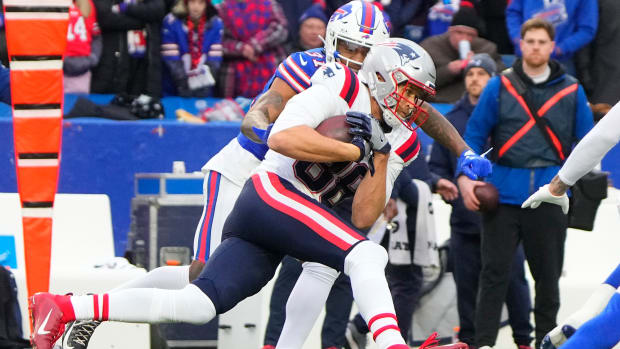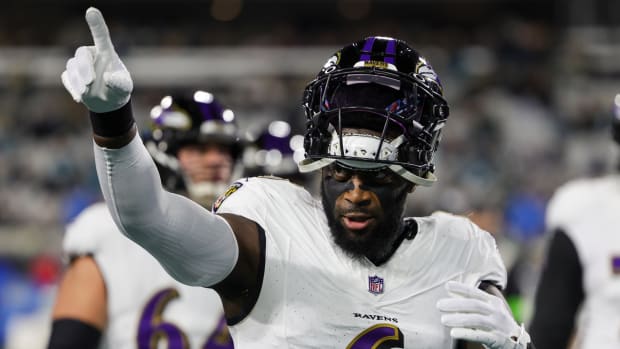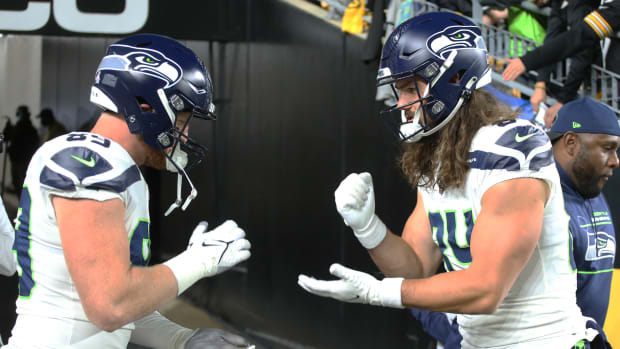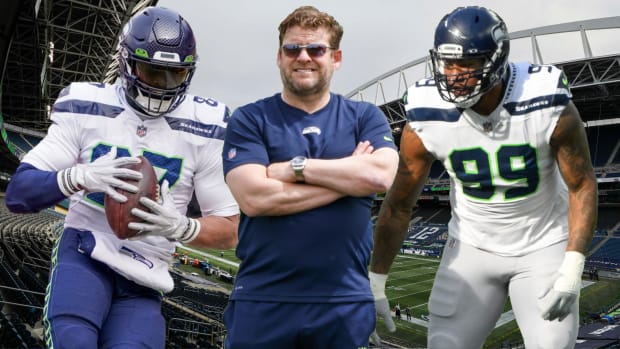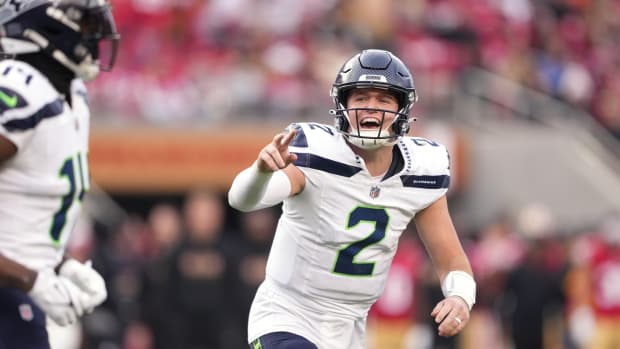Clock Ticking For Seahawks to Use Franchise Tag
Most years, Seahawks general manager John Schneider wouldn't even consider franchise tagging a player. In his 12 previous seasons calling the shots, he has only used the non-exclusive tag on kicker Olindo Mare in 2010 and defensive end Frank Clark in 2019, with the latter being dealt to the Chiefs weeks later.
Typically, Schneider has preferred to avoid the franchise tag because teams must offer the designated player a one-year contract no less than either the average of the top-five salaries at that player’s position or 120 percent of the player’s previous year’s salary, whichever is greater. Such deals carry massive cap hits and that's not normally how he conducts business with short-term deals.
But with several key starters set to become unrestricted free agents next week, including safety Quandre Diggs and tackle Duane Brown, this may be a rare year where Schneider decides to buck prior trends and slap the tag on a player before the March 8 deadline to prevent him from hitting the market.
Speaking with reporters during the NFL Scouting Combine last week, Schneider didn't provide any indications on whether or not he intended to place the tag on a player, indicating that would be one of the many decisions on the table after a busy week conducting offseason business such as meeting with prospects and agents in Indianapolis.
"I don't know that yet. Again, that's one of those things, we'll have to get on that," Schneider responded. "You get on that plane and you're just like... You go back home and you're like, 'Holy cow,' you take in everything, you go through all your notes, you look at everything, and then we'll get together and have our reset next week.
Of all the players who could make the most sense to franchise, a strong case can be made for Diggs, who earned his second straight Pro Bowl after leading the team with five interceptions in 2021. Since arriving in a midseason trade from the Lions in 2019, the ball-hawking safety has picked off 13 passes while also contributing 158 tackles and 20 passes defensed in only 38 games.
One of the team's unsung leaders on the field and in the locker room, even after suffering a fractured fibula in Seattle's season finale and undergoing surgery, the 29-year old Diggs could command as much as $12 million or more per year on the open market. At an estimated price of $13.5 million per OverTheCap.com, the franchise tag wouldn't be that much more expensive and would provide time for Schneider and the front office to continue negotiating a long-term deal.
The issue, of course, lies in the fact the Seahawks gave Jamal Adams a four-year, $70 million contract extension last August. If Diggs played on the tag next year, the team would have a $12.911 million cap hit added to the books, pushing their spending at the safety position north of $20 million next year.
When asked if the idea of investing that much money in a non-quarterback position concerned him, however, Schneider didn't seem deterred by the idea of paying to keep both players in Seattle's secondary.
"We've always just tried to keep our best players," Schneider commented. "And we saw, it was on us for a little while about our offensive line, but we were paying Richard Sherman and Kam Chancellor and Earl Thomas and Bobby Wagner, and K.J. Wright, you know what I mean? So you try to keep all your best players. And so that's going to be what we try to do, is to keep everybody."
When asked about Diggs' perceived value, Schneider scoffed the notion safeties aren't worth investing significant money in, citing the impact they have on plays even when they aren't involved making tackles or running to make a play on the football in coverage.
"That's why I think it's the ultimate team game. 'Well, this position is isn't as important as that position.' Well, talk to our analytics guys," Schneider added. "Everybody on that field is making an impact on that play, on a specific play. So even though, especially at safety, people say, 'Well, that guy, he's not involved in the play.' Yeah, he is involved in the play, because quarterback's checking him out, and seeing what he's doing. So we're going to try to keep all of our players. That's why we're having all these meetings with these agents."
As for other impending free agents who could receive the franchise tag, while nothing can ever truly be ruled out in this business, it's highly unlikely Schneider will seriously consider other options due to the prohibitive cost.
At running back, Rashaad Penny enjoyed a dominant finish to the 2021 season, rushing for over 700 yards and six touchdowns in Seattle's final six games. But while the team hopes to bring him back, he has missed nearly 30 regular season games due to injury since being drafted in 2018 and tagging him would cost north of $9.57 million, likely well beyond what they would be willing to pay him given his position and injury history.
Up front, Brown may have been worth $16.662 million on a one-year non-exclusive tag a few years ago. But the veteran left tackle had an up-and-down season in 2021 and will turn 37 years old in August, so it seems unlikely the team would be willing to pay him that when he earned significantly less last season.
As well as cornerback D.J. Reed played last season, even being in the prime of his career at 25 years old, the Seahawks certainly won't tag him for more than $17 million in 2021. The same can be said for tight end Gerald Everett, who would earn $10.931 million on the tag after playing on a one-year, $6 million pact last season.
With none of those options being ideal, Diggs stands out as the only viable option to tag. Considering how his presence patrolling center field influences quarterbacks and dictates offensive game plans, will that value make him worth the price of the tender to ensure he doesn't leave in free agency? Only Schneider and his front office mates know the answer and more clarity will be known by 1 PM PST tomorrow.
